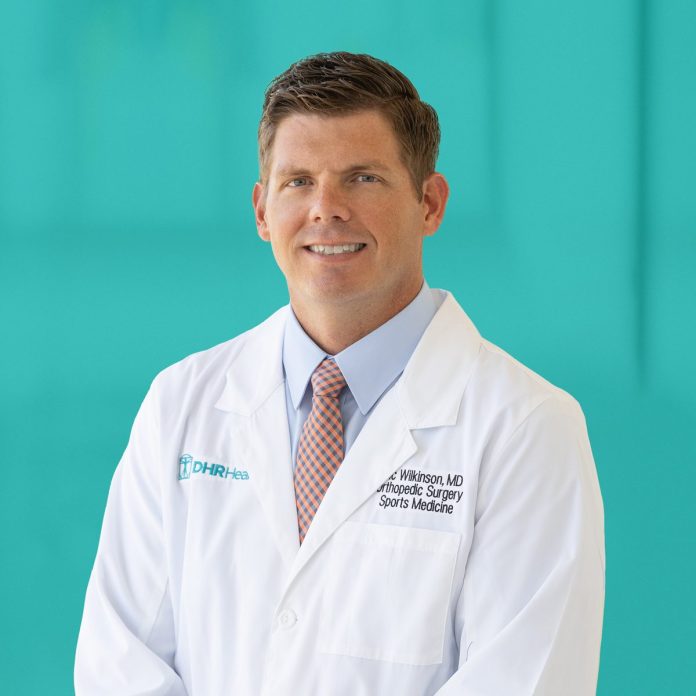By: Eric Wilkinson, M.D.
DHR Health Orthopedic Institute
As an Orthopedic Surgeon who specializes in Sports Medicine, I love the fall sports season. Instinctively I think of football, cheerleading, band and volleyball, but I also love following Major League Baseball’s chase for a World Series pennant.
It is estimated that more than 30 million children and teenagers participate in organized sports today. Sports participation provides individuals the benefits of athletic accomplishment and fitness while also reinforcing a sense community.
As social media displays the extremes of athletic accomplishment, many of today’s athletes feel pressure to focus on one sport year-round in order to “get to the next level”. Without rest or changing sports during the year, athletes commonly develop overuse injuries. Playing different sports, an athlete utilizes different muscle groups which provides relative rest while staying active.
In baseball, most injuries involve the shoulder or elbows. Tendonitis, ligament sprains, and muscle strains are all examples of common overuse injuries. Sometimes, overuse injuries lead to more serious injuries, but could have been avoided with adequate rest and conditioning.
Multiple sport athletes many times have minimal transition periods between sports. As each sport requires specific conditioning exercise to stay healthy, inadequate conditioning for their next sport predisposes them to other injuries.
To reduce injury risks, baseball athletes should engage in pre-season conditioning exercises to increase rotator cuff and scapular strength, shoulder range of motion and flexibility, as well as core strength. As adequate warm-ups are important before a workout, baseball players need an adequate preseason buildup of their arm strength. Throwing programs and arm care exercises are the first step in preventing in season shoulder and elbow injuries.
In my practice, I treat athletes and weekend warriors from a broad range of sports. Let us help you stay in the game. For information or to schedule a consultation, please contact the DHR Health Orthopedic Institute at 956-362-6683.




